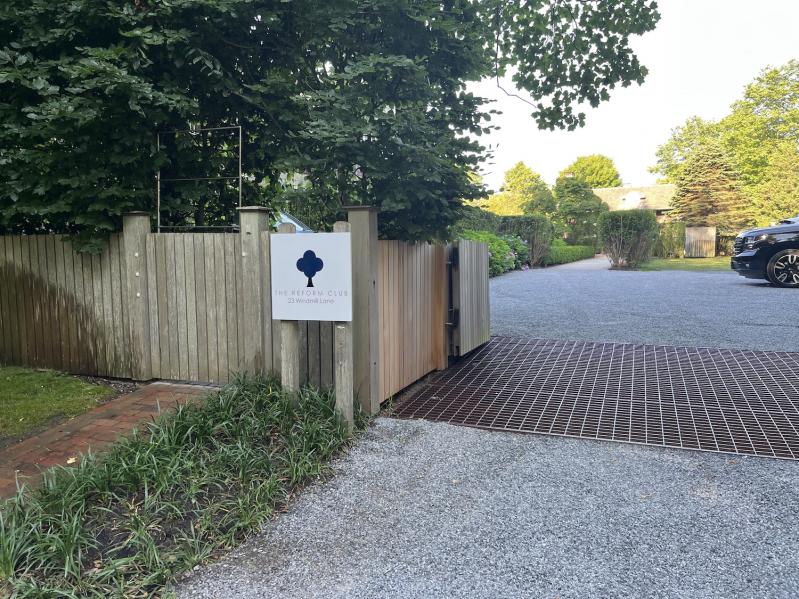People had barely sat down after reciting the Pledge of Allegiance at Monday night’s meeting of the Amagansett Citizens Advisory Committee when its chairwoman, Rona Klopman, announced that “we are not going to discuss Rowdy Hall, because that is an A.R.B. decision.”
In other words, whether the popular pub and burger bistro, which plans to move to Amagansett Main Street next month, will arrive clad in black paint as its owners want or some other color has been chewed over on social media ad nauseam in the past few weeks, so no more of that. The town’s architectural review board will determine what colors are allowed under the street’s historic district guidelines.
Instead, speaking of paint colors, 45 minutes or so were spent talking about the guidelines themselves, which were drawn up in 2000 and suggest, among a great many other things, that “the front facade of a new building should face the street.”
Michael Jordan, a lawyer and a committee member, took exception to the continuous use of the word “should,” suggesting that “required” or “must” would be better. Mr. Jordan also touched on several other aspects of the 50-page document, among them lighting, windows, siding, and the like.
With reference to Main Street, which is called the “central business district,” the guidelines state that “historic commercial development is characterized by small-scale individual buildings, many of which are separated from others by significant open space. These characteristics contribute to the rural character of the Historic District.”
Jaine Mehring put it this way: “The rhythm of the streetscape — how it all fits together and integrates — is what makes our historic district,” not, she said, specifics about, for example, “timber frames,” as in East Hampton Village.
The author of the Amagansett Historic Guidelines, Robert Hefner, formerly the village’s director of historic preservation, will be invited to the committee’s next meeting, on Nov. 13, to continue the discussion.
There followed a somewhat edgy exchange between the next-door neighbor of the Reform Club, JoAnn Kreps, and the club’s manager, Sam Fox. Since Covid, said Ms. Kreps, the hotel “has become an event facility,” with late-night weddings “every weekend in September.”
“Buses pull up to my house late at night,” she said. “They are pulling in my driveway. How do I plan? How do I have guests when 150 people are celebrating? I would be happy with once a month, but every weekend?”
Actually, said Mr. Fox, the club had three weddings in September, just one this month, and “no late-night events in July or August.” Primarily, he said, “It’s a place for wellness.” But, he went on, “We are trying to improve. The last two were far better than the one that was an issue.” The East Hampton Town Board has approved all the permits, he noted.
“What changes have you made?” Vicki Littman, vice chairwoman of the advisory committee, asked him.
“We are moving to a 10 p.m. end time,” Mr. Fox replied. The “issue” wedding did not end until 11, he acknowledged.
“Shuttle buses in front of your property is totally unacceptable,” said Ms. Littman. “It could be up to you to say, no school buses.”
Tom Field, who lives off Main Street next to the Roundtree inn, spoke up to say the inn always gives him the schedule when an event is to take place. “They even invited me and my wife to the first two weddings,” he remarked, to a ripple of applause.
“I’ll give as much notice as I can,” Mr. Fox promised. “As of now, we have two weddings for next year, September and October.”
Great, said Ms. Littman. “We want you to have a successful business, and we want the neighbors to be happy.”




